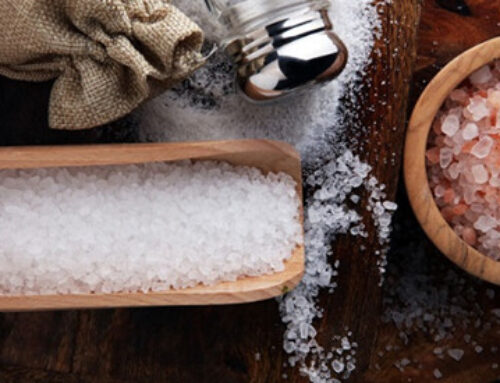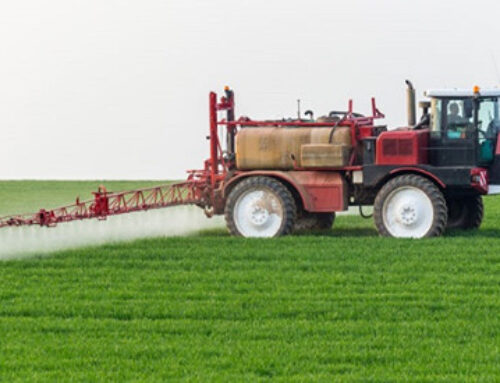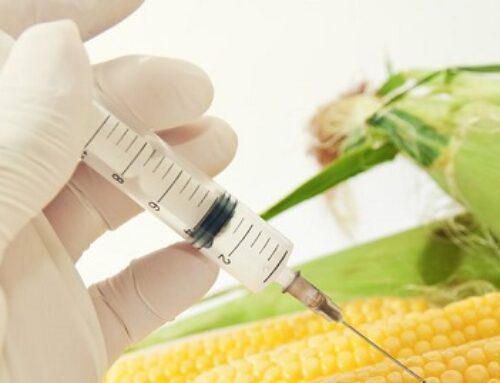The humble honey bee is a crucial part of our food system. But, mysterious bee deaths are causing colonies to collapse and our agriculture to be threatened. Read on to learn why this is happening and what you can do to help.
I have been following the humble bee for at least three decades. As an avid gardener, I love bees and all the pollinators that make it possible for me to have a beautiful garden. Bees are essential for the pollination of our produce, but they are dying in alarming numbers. About ten years ago, I read about the mysterious collapse of bee hives across the country. Beekeepers were discovering entire hives full of dead bees. I remember thinking how devastating this could be if the problem didn’t resolve. Ten years later, it has not resolved. In fact, it has gotten worse.
No one can say with complete certainty what is behind the collapse of millions of bee hives. We know it is not from lack of food, because the dead hives are discovered with plenty of honey still in the hive. Something else is going on. In 1940, we had 5-6 million hives in the US. In 2013, that number had dropped to 2.5 million (1, 2). What’s worse is that we need our bees now more than ever—since 1960, the acreage planted requiring pollination has increased by 300%.
Why should we care about bees anyway? One out of every three bites of food on your plate is there because of hard-working European honey bees (2). Fifty-two percent of the produce in your grocery store is there because of our bees or other pollinators, which are also in serious decline. If our pollinators continue to die, these foods will disappear. This is even more important because many of them are extremely nutritious and needed for their ability to nourish and heal. Take a close look at your grocery store next time you go shopping. Try to imagine not seeing zucchini, leeks, bok choy, broccoli, broccoli rabe, mustard greens (my favorite), cauliflower, celery, cucumbers, eggplant, green onions, honeydew melons, lemons and limes, mangos, apples, avocados, and many other fresh produce (1).
We were lucky for a period of time to enjoy an extra-large bounty from our garden while our neighbor kept some hives in our pasture. After several years and a large investment, he had to call it quits because the hives kept dying and it was not economical to continuously replace the colonies. At one point, he had 23 hives in our neighborhood. Now, he has none.
Some years ago, I watched a program on TV about an agricultural area in China where there are no pollinators left. The bees are completely gone. This region produces apples and the Asian pear, a super delicious crisp apple-like fruit if you haven’t tried it yet. The whole mountainside is planted in these fruit trees and they are now pollinated by human hand, with a small brush made from feathers. You can see the farmers climbing ladders up and down trees, doing the work that bees and other pollinators used to do for free. I wonder how much the cost of that fruit increased once people were being used to pollinate instead of bees.
Scientists who are studying pollinator decline tell us it is a multi-faceted problem. Maybe the bees are infected with a parasitic mite or there is a problem with the bees’ immune systems, allowing opportunistic infections like fungal, bacterial and viral to take hold. But, I can’t help but wonder why their immune systems are failing them in the first place. What would cause their health to decline to the point where they are susceptible to every potential infection that comes along? Is our rampant use of insecticides to blame?
Neonicotinoid pesticides are potent neurotoxins. These insecticides are designed to damage the insects’ nervous system and they work well. They are often applied as a coating to the seed before it is planted and they are also sprayed on the crops. Many scientists believe insecticides have nothing to do with the loss of our precious bees, but some say the damage is caused by the saturation of our environment with these poisons. The latter, of course, are the scientists who do not work for large chemical manufacturing plants. What if neonicotinoids really are responsible for the death of 44% of all the bees in the US last year? Wouldn’t it be better to be cautious than to wait until our bees are gone and our food system is facing collapse?
I did some research and found some interesting facts. The industry that manufactures these insecticides denies any connection to bee deaths. They claim Colony Collapse Disorder is to blame, and it has nothing to do with their products (4). But Germany and France found big problems with Bayer’s imidacloprid, a neonicotinoid used in commercial agriculture. In 1999, France lost a third of their beehives after the widespread spraying of imidacloprid on sunflowers. Their government did the prudent thing and banned it from use. In 2004, it was banned for use on corn and within the last year I watched as France and Germany refused to approve Bayer’s request to sell clothianidin, another neonicotinoid, in their countries. They are certain it is killing their bees. We have had clear problems with neonicotinoid insecticide in our country. In 1995, a lawsuit was filed against Bayer after spraying rapeseed fields with imidacloprid resulted in a huge loss of bees in Montana (2). This, I believe, is very clear and damning evidence for insecticides. While many will continue to claim the chemicals we spray on our fields have no effect on our bee population, the evidence from abroad is damning.
Insecticides disorient bees while out foraging, making it impossible for them to navigate their way back to the hive. Even a small amount of a chemical can kill our bees. The amount is so tiny, in fact, that it is virtually undetectable. It can come from a sprayed field, a chemical-laden breeze that sweeps through a bee colony, or the poison that was originally put on the seed, which grew into the flower the bee is now pollinating. Our environment is saturated with these insecticides, after several decades of widespread use. Isn’t it common sense to take these toxins out of the environment for the sake of our communities, our health and our crops? If our government continues to ignore the proof from European countries, bee colonies will continue to die until they become extinct. It’s a sobering thing to consider.
As consumers, we must take an active role in the future of our pollinators by advocating for organic produce. Purchase organic plants at your local nursery to ensure your garden does not become part of the problem. Organic flowers, vegetable and fruit plants are never treated with neonicotinoids, so you will not be bringing home plants that will poison bees and other pollinators in your neighborhood. By purchasing organic fruits and vegetables, not only will you be protecting pollinators, you and your families will be protected as well by not ingesting residual amounts of this and other toxic pesticides. You can also purchase local, organic honey and help support bee colonies in your area.
I hope the day will come when my neighbor decides it is safe to restock the hives and restart his honey business. How sweet it is to have such a wonderful, healthy treat available in your own backyard! I did not recognize the value of honey bees until the hives were gone and my summer garden stopped producing as well. I hope we don’t lose them forever.
Cited References:
- Breyer, Melissa. What a grocery store without bees looks like. Mother Nature Network; June 17, 2013. Available here. Accessed October 2016.
- Walsh, Bryan. Beepocalypse redux: Honeybees are still dying and we still don’t know why. Time Magazine; May 7, 2013. Available here. Accessed October 2016.
- Curtis, Carole. Number of managed honey bee hives drops. Wisconsin State Farmer; April 15, 2014. Accessed October 2016.
- Stevenson, Heidi. Colony collapse disorder is a fraud: Pesticides cause bee die-offs. Green Med Info.; May 16, 2013. Available here. Accessed October 2016.










